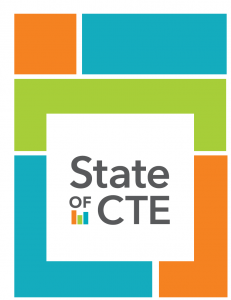The views, opinions, services and products shared in this post are solely for educational purposes and do not imply agreement or endorsement by Advance CTE, nor discrimination against similar brands, products or services not mentioned.
Today states are working to address teacher shortages1, milling and baker shortages2, hospitality labor shortages3 and more. In the baking field alone, the industry is expected to have approximately 53,000 unfilled jobs by 2030. Since 2006, the Alliance for Family and Consumer Sciences (FCS) has collaborated to provide career exploration resources, professional development opportunities, and industry-recognized credentials to equip Career Technical Education (CTE) learners to lead better lives, be work- and career-ready, and make meaningful contributions in their communities.
State CTE Directors and their staff play an important role in helping to fill these shortages through the programs and pathways offered in their state. Family and Consumer Sciences programs ensure learners are prepared with the necessary academic, technical, and employability skills to be successful in any workplace and provide them with training in over eight content specialty areas, amplifying the effectiveness of FCS programs in putting learners into career paths directly from graduation. To review the range of specialties supported by Family and Consumer Sciences, visit the Alliance website.
The Alliance for Family & Consumer Sciences is a coalition of organizations representing academia, business and industry, professional associations, and honor societies leading family and consumer sciences efforts around the globe. Today, AAFCS serves as the managing partner of the Alliance.
The Alliance for FCS members are ideal partners for states seeking to set up programs and connect with business and industry and content experts to grow Family and Consumer Sciences education throughout the U.S.
 The Alliance for FCS provides research and resources in Family and Consumer Sciences content areas. One specific example is the resource page on Nutrition and Wellness which supports states seeking to prepare learners to enter industries suffering worker shortages such as culinary arts, milling and baking, food science and nutrition, and food-supporting industries. Lesson plans, safety tips, webinars, certification programs, and other programs offered by Alliance for FCS members are available to CTE directors and staff to enhance state educational programs, making them ideal sources of future employees for these industries. Visit the Alliance for FCS, Nutrition, and Wellness Resources today at https://www.aafcs.org/allianceforfcs/initiatives/nutrition-wellness
The Alliance for FCS provides research and resources in Family and Consumer Sciences content areas. One specific example is the resource page on Nutrition and Wellness which supports states seeking to prepare learners to enter industries suffering worker shortages such as culinary arts, milling and baking, food science and nutrition, and food-supporting industries. Lesson plans, safety tips, webinars, certification programs, and other programs offered by Alliance for FCS members are available to CTE directors and staff to enhance state educational programs, making them ideal sources of future employees for these industries. Visit the Alliance for FCS, Nutrition, and Wellness Resources today at https://www.aafcs.org/allianceforfcs/initiatives/nutrition-wellness
To inquire about resources in the other Family and Consumer Sciences content areas or to join the Alliance, reach out to [email protected] for more information.
About the Alliance for FCS
The mission of the Alliance for Family & Consumer Sciences is to unify diverse organizations with a common purpose by advancing the value of family and consumer sciences globally. These efforts will enhance the visibility and viability of family and consumer sciences to improve the quality of life for individuals, families, and communities in a diverse and global society.


 States make significant contributions to CTE programs through non-categorical, line item appropriations. Programmatic funding is distributed through periodic, legislatively established authorizations that are contingent on the availability of funds. States often place conditions on how money should be spent or used to promote state priorities. Additionally, a programmatic line item appropriation can be a recurring or a one-time investment. This blog highlights appropriations in industry-recognized credentials, Career Technical Student Organizations (CTSOs), career advisement, and educator preparation for fiscal year (FY) 2022. You can read more about categorical funding in the first blog in this series,
States make significant contributions to CTE programs through non-categorical, line item appropriations. Programmatic funding is distributed through periodic, legislatively established authorizations that are contingent on the availability of funds. States often place conditions on how money should be spent or used to promote state priorities. Additionally, a programmatic line item appropriation can be a recurring or a one-time investment. This blog highlights appropriations in industry-recognized credentials, Career Technical Student Organizations (CTSOs), career advisement, and educator preparation for fiscal year (FY) 2022. You can read more about categorical funding in the first blog in this series,  Additional Resources
Additional Resources When learners earn an industry certification, they’re not just earning a credential for their resume. They’re also potentially saving money on higher education. It’s no secret that pursuing higher education in the United States comes at a high cost to learners. According to
When learners earn an industry certification, they’re not just earning a credential for their resume. They’re also potentially saving money on higher education. It’s no secret that pursuing higher education in the United States comes at a high cost to learners. According to 
 President Biden Unveils FY24 Budget Request
President Biden Unveils FY24 Budget Request 

 We offer several resources to support state CTE leaders in leveraging CTE programs to develop learner experiences and pathways in energy careers. . In addition, some states have a specific energy Career Cluster devoted to preparation for this sector. CTE also provides opportunities to earn stackable certificates, industry-recognized credentials, and degrees as outlined by the Center for Energy Workforce Development’s
We offer several resources to support state CTE leaders in leveraging CTE programs to develop learner experiences and pathways in energy careers. . In addition, some states have a specific energy Career Cluster devoted to preparation for this sector. CTE also provides opportunities to earn stackable certificates, industry-recognized credentials, and degrees as outlined by the Center for Energy Workforce Development’s  A severe lack of skilled workers and an aging workforce threaten to slow new home production, curb housing affordability, and derail the industry’s ability to stand strong amid rising recession risks to the overall economy. In fact, the construction industry needs to add 2.2 million workers over the next three years to keep up with housing demand, according to a recent
A severe lack of skilled workers and an aging workforce threaten to slow new home production, curb housing affordability, and derail the industry’s ability to stand strong amid rising recession risks to the overall economy. In fact, the construction industry needs to add 2.2 million workers over the next three years to keep up with housing demand, according to a recent A “black swan” event is an unpredictable occurrence beyond what is normally expected of a situation, often with severe consequences. While the entire educational environment was impacted by the coronavirus pandemic, Career Technical Education (CTE), which focuses on hands-on learning, was heavily impacted by this black swan event. In addition to navigating the perils of COVID-19, CTE experienced instructor shortages and concerns about the limited related work experience of those available for these positions. Though many states have relevant, standardized, industry-identified competencies, the associated curriculum must be delivered by individuals with a solid understanding of the field, which is generally based on work experience. In some cases, these concerns can result in a reduction of content depth delivered in a CTE classroom.
A “black swan” event is an unpredictable occurrence beyond what is normally expected of a situation, often with severe consequences. While the entire educational environment was impacted by the coronavirus pandemic, Career Technical Education (CTE), which focuses on hands-on learning, was heavily impacted by this black swan event. In addition to navigating the perils of COVID-19, CTE experienced instructor shortages and concerns about the limited related work experience of those available for these positions. Though many states have relevant, standardized, industry-identified competencies, the associated curriculum must be delivered by individuals with a solid understanding of the field, which is generally based on work experience. In some cases, these concerns can result in a reduction of content depth delivered in a CTE classroom.  Advance CTE joins the Arkansas Department of Education in welcoming Ross White as the new State Career Technical Education (CTE) Director. Ross transitions into this role while fulfilling the duties of the Association for Career and Technical Education (ACTE)’s
Advance CTE joins the Arkansas Department of Education in welcoming Ross White as the new State Career Technical Education (CTE) Director. Ross transitions into this role while fulfilling the duties of the Association for Career and Technical Education (ACTE)’s